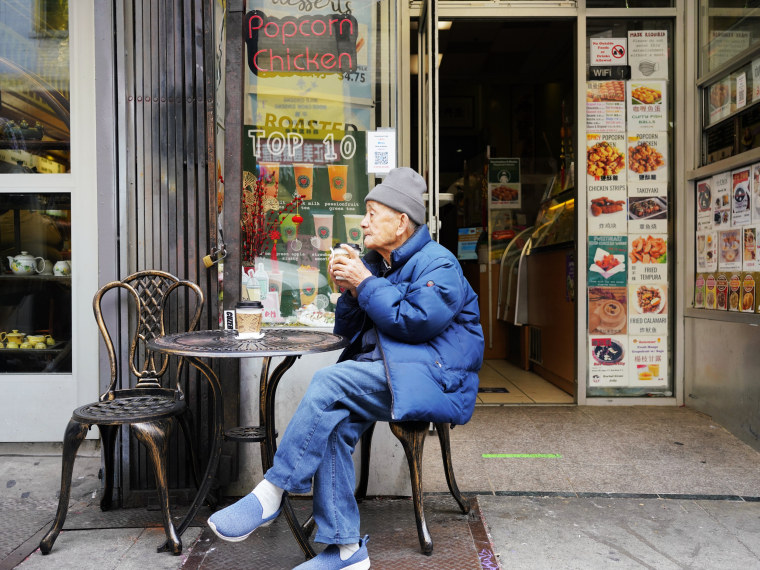Asian American elders experience significantly lower life satisfaction and receive less emotional support than their peers of other races, according to a recent study published in the Journal of the American Board of Family Medicine.
The research, published in January and peer-reviewed, draws on 2018 data from the California Health Interview Survey, the largest state health survey in the U.S. The sample consisted of nearly 8,200 individuals 65 years and older, including people of Chinese, Korean, Filipino and Vietnamese descent.
“We know it’s a common misconception that Asians are doing better than other racial groups,” Riti Shimkhada, the study’s lead researcher and a senior research scientist at the UCLA Center for Health Policy Research, told NBC Asian America. “There’s much that we don’t know about our older adults, and these results show they aren’t doing as well as people may perceive.”
Only 54 percent of Asian American older adults surveyed said they were satisfied with their lives, compared with 80 percent of respondents of other races and ethnicities. Similarly, 56 percent of Asian American elders reported usually or always receiving needed social and emotional support — a significantly lower share than the 80 percent of people of other groups. Shimkhada said there are no significant differences based on income level or household size.
Among Asian Americans, Korean elders reported the lowest level of life satisfaction, at 40 percent. Less than one-third of Korean participants said they received needed social and emotional support, compared to nearly two-thirds of Chinese and Filipino respondents.
DJ Ida, executive director of the National Asian American Pacific Islander Mental Health Association, said a number of social and cultural factors make aging a particularly agonizing process for people from marginalized communities.
“In general, mental health needs increase as people get older,” she said, noting that physical and emotional exhaustion, as well “the sense of anxiety around the meaning of life,” all grow more acute with age. “But our health care facilities are not adequate for the needs of the Asian community.”
Not many mental health providers, for example, can accommodate the language needs of Asian American elders, more than half of whom have limited English proficiency, according to a National Asian Pacific Center on Aging report.
Shimkhada said the study’s biggest limitation was that there’s only one year of data on life satisfaction and emotional support, making it difficult to track long-term trends or the impact of the pandemic. In addition, South Asians were not included in the analysis because their sample size in the study was too small.
The pandemic has increased social isolation and loneliness among older adults that could have led to even lower levels of life satisfaction. A new report by the Asian American Federation found that 75 percent of Asian older adults in New York are afraid to leave their homes as a result of anti-Asian violence. But the uptick in anti-Asian hate incidents, Shimkhada said, has also generated an upswell of community support for older adults, notably in the form of volunteer patrol groups, that could also promote feelings of support.
Another point of intervention is through primary care or family medicine physicians, who are often the first or only point of social contact for many elders.
“It’s an area where policy could help,” Shimkhada said, “in training providers to identify strain or loneliness in older adults and provide resources for them.”
Older adults who experience chronic poverty have higher levels of fear and anxiety that are often rooted in traumatic experiences, said Winnie Yu, director of programs and administration at the nonprofit organization Self-Help for the Elderly, which provides health care and social services to more than 40,000 low-income elders in the San Francisco Bay Area.
To mitigate the challenges of isolation during the pandemic, Self-Help for the Elderly rolled out a range of virtual and in-person activities, including yoga, stress reduction and nutrition workshops, and history and computer classes.
Yu said the study’s findings track with what she’s observed in her community, but the data may be an undercount given the cultural stigma against reporting and seeking help for mental illness.
“My fear is that many more seniors are suffering in silence,” Yu said. “They think they can manage on their own and will do as much as they can rather than seek help.”
